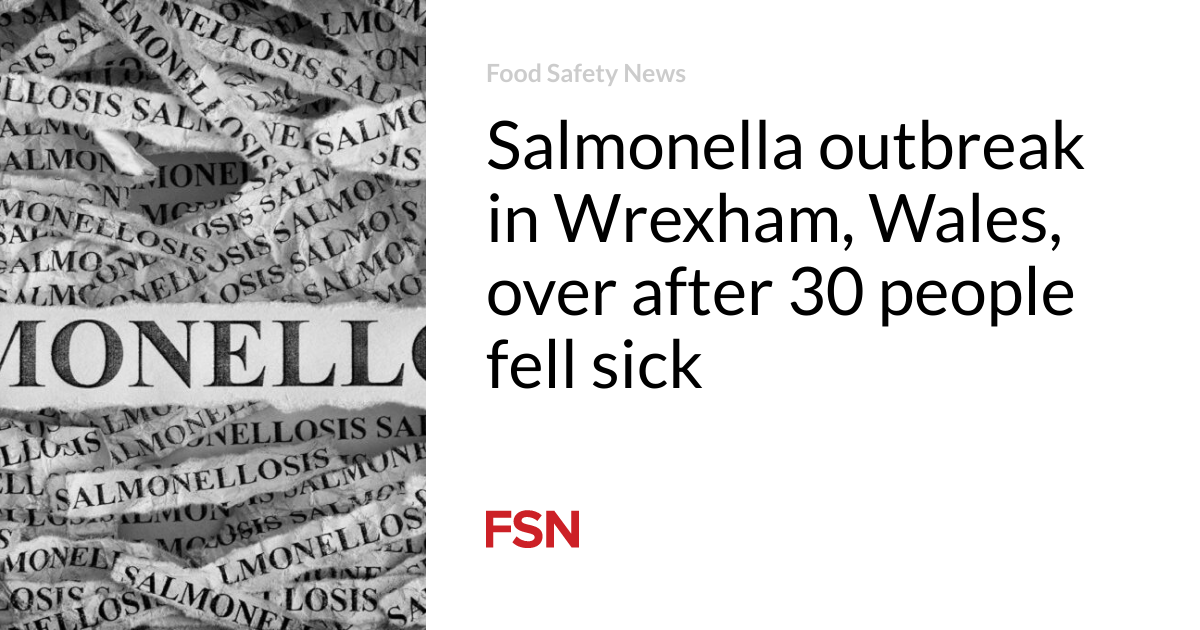Infection
Salmonella outbreak in Wrexham, Wales, over after 30 people fell sick
A Salmonella outbreak in a Welsh city has been declared over after sickening more than 30 people.
A total of 33 confirmed and one probable case were linked to a pub in Wrexham.
Despite an investigation and testing, the precise source or route of transmission in the Salmonella Infantis outbreak was not identified.
In late July, an Outbreak Control Team (OCT) was established including Public Health Wales, Betsi Cadwaladr University Health Board and Wrexham County Borough Council’s environmental health team.
No details on the age range or gender of patients were released to protect their identity.
Source of outbreak unknown
Richard Firth, consultant in public health at Public Health Wales, and chair of the OCT, said several cases of Salmonella were identified in Wrexham at the end of July.
“We can confirm a total of 33 confirmed, genomically identical, cases of Salmonella infection and one probable case associated with The Nags Head public house on Mount Street, Wrexham, owned by Marston’s PLC,” he said.
“On July 31, control measures were put in place, which included a voluntary closure and deep clean of the premises, and testing of all staff. No further cases have been identified since the control measures were put in place.
“Whilst all the evidence indicates the exposure site for the infections being The Nags Head, extensive investigation and testing has not identified the precise source or route of transmission for the infections. Public Health Wales would like to extend our sympathies to those affected by this outbreak. We would also like to thank our multi-agency partners as well as the management and staff at both The Nags Head and Marston’s PLC for their proactive support throughout this investigation.”
About Salmonella
Food contaminated with Salmonella bacteria does not usually look, smell, or taste spoiled. Anyone can become sick with a Salmonella infection. Infants, children, seniors, and people with weakened immune systems are at higher risk of serious illness because their immune systems are fragile, according to the CDC.
Anyone who has developed symptoms of Salmonella food poisoning should seek medical attention. Sick people should tell their doctors about the possible exposure to Salmonella bacteria because special tests are necessary to diagnose salmonellosis. Salmonella infection symptoms can mimic other illnesses, frequently leading to misdiagnosis.
Symptoms of Salmonella infection can include diarrhea, abdominal cramps, and fever within 12 to 72 hours after eating contaminated food. Otherwise, healthy adults are usually sick for four to seven days. In some cases, however, diarrhea may be so severe that patients require hospitalization.
Older adults, children, pregnant women, and people with weakened immune systems, such as cancer patients, are more likely to develop a severe illness and serious, sometimes life-threatening conditions. Some people get infected without getting sick or showing any symptoms. However, they may still spread the infections to others.
(To sign up for a free subscription to Food Safety News, click here.)

